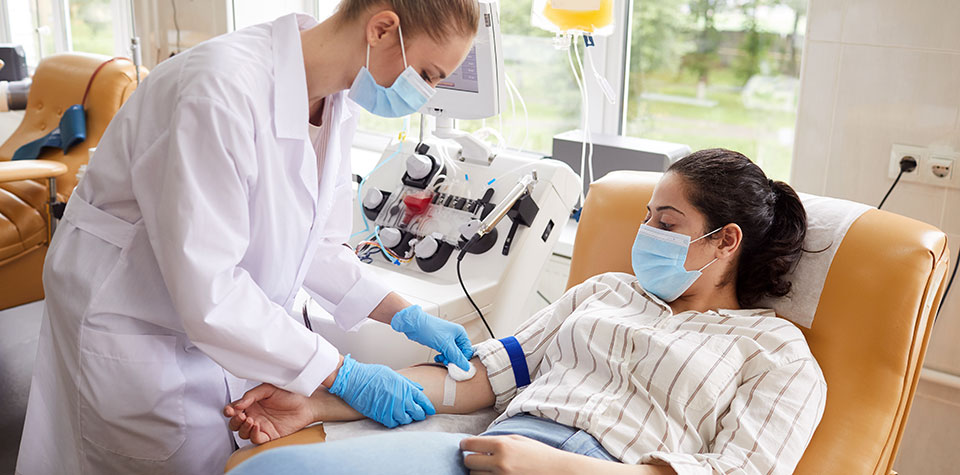Thorough Northeast Medical Institute Phlebotomy Courses Stamford: Advancement Your Abilities
Thorough Northeast Medical Institute Phlebotomy Courses Stamford: Advancement Your Abilities
Blog Article
Essential Factors to Think About When Choosing one of the most Suitable Medical School Educational Program for You
Choosing the most suitable clinical institution educational program is a critical choice that can significantly influence your academic journey and future career path. As aspiring clinical professionals, the choice of educational program must align with your individual learning style and job goals.
Personal Knowing Design

Additionally, identifying just how one learns best can also boost study habits and time management abilities. Trainees that involve with material in such a way that lines up with their discovering style are most likely to keep information a lot more efficiently, resulting in far better efficiency in exams and professional practice. Medical schools that use diverse training approaches and resources can fit various learning styles, cultivating a inclusive and vibrant educational atmosphere. Ultimately, understanding personal learning choices empowers trainees to make informed choices concerning their clinical education, setting a solid foundation for their future careers in health care. Northeast Medical Institute CNA Classes Near me Stamford.
Career Objectives Positioning

Additionally, lining up occupation goals with the medical institution curriculum can likewise enhance inspiration and engagement throughout the academic journey. They are more most likely to remain focused and specialized to their researches when pupils see the direct relevance of their coursework to their future career. As a result, when choosing a medical school educational program, it is important to carefully take into consideration exactly how well it aligns with one's career goals to make certain an effective and satisfying professional path.
Teaching Methodologies
Considering the placement of occupation objectives with the chosen clinical college curriculum, an evaluation of the teaching methods employed ends up being critical in shaping the finding out experience. The performance of a medical college curriculum heavily depends on the training techniques utilized by the institution. Different mentor methods, such as talks, little team conversations, problem-based understanding, simulation-based training, and hands-on medical experience, can dramatically influence exactly how well trainees comprehend and keep details.
Simulation-based training allows trainees to practice medical abilities in a controlled environment before engaging with genuine patients. Hands-on scientific experience provides a direct understanding of person treatment and clinical practices.
When choosing a clinical school educational program, striving trainees should think about the mentor methods used to make sure that their learning preferences and staminas align with the educational strategy of the institution.
Curriculum Flexibility
When assessing medical school programs, evaluating the level of curriculum versatility is important for possible pupils looking for a tailored academic experience. Curriculum adaptability describes the degree to which students can personalize their understanding paths within the medical institution educational program. A curriculum that uses flexibility enables pupils to pursue their rate of interests, emphasis the original source on locations where they need much more assistance, and involve in learning experiences that line up with their career objectives.
Prospective medical trainees should consider exactly how a clinical school's educational program flexibility lines up with their learning choices, profession desires, and individual goals. By choosing a program that uses the best balance of structure and versatility, pupils can maximize their educational experience and prepare themselves for effective occupations in medication.
Medical Direct Exposure Opportunities
Exploring the useful application of clinical knowledge, medical exposure possibilities play an essential duty in forming a comprehensive clinical education and learning. These possibilities offer pupils with invaluable hands-on experience in genuine medical care setups, enabling them to link the gap between concept and practice. When considering clinical college educational program, the quality and quantity of scientific exposure should be thoroughly evaluated.
Reliable scientific exposure ought to provide a varied range of experiences across different specializeds, making sure that trainees are revealed to different medical circumstances and patient demographics. Direct exposure to outpatient facilities, inpatient wards, medical theaters, and emergency situation departments can help students create a well-rounded understanding of different facets of health care distribution. In addition, possibilities for community-based treatment and interactions with underserved populations can promote a much deeper appreciation for the social factors of health.
Moreover, the existence of supportive professors and advisors throughout these clinical experiences can considerably enhance the learning process. Professors advice and positive feedback can assist see here now trainees show on their professional experiences, identify areas for renovation, and enhance their decision-making capacities and scientific skills (Northeast Medical Institute CNA Classes Near me Stamford). On the whole, robust scientific exposure chances are vital for preparing future physicians to deliver top quality client treatment efficiently
Conclusion
Finally, when selecting a clinical school educational program, it is important to consider your personal discovering style, positioning with career goals, teaching approaches, educational program flexibility, and scientific exposure opportunities. These factors play a visit the site critical function in establishing one of the most ideal program for your educational and specialist growth. Make sure to completely review each aspect to make a notified choice that will best support your development in the clinical field.
Comprehending one's individual learning style is critical when selecting a medical institution educational program. By identifying one's learning style early on, aiming clinical students can tactically select an educational program that provides to their strengths, ultimately improving their discovering experience and scholastic success.
When reviewing medical school programs, evaluating the degree of educational program adaptability is crucial for prospective trainees looking for a customized educational experience. Curriculum flexibility refers to the degree to which trainees can customize their discovering courses within the clinical institution educational program.In conclusion, when selecting a medical college curriculum, it is vital to consider your individual discovering style, positioning with profession goals, instructing approaches, curriculum flexibility, and scientific exposure chances.
Report this page